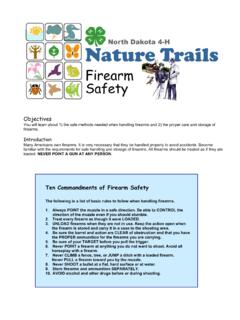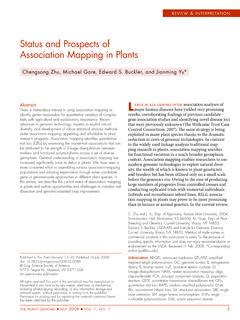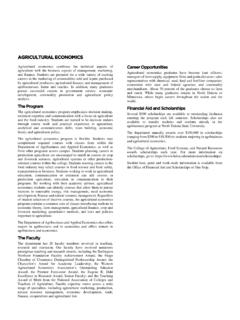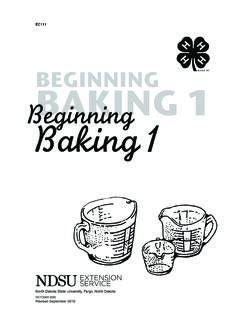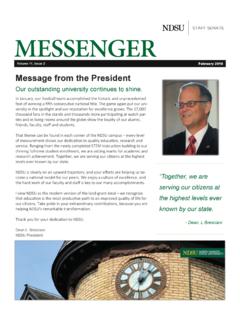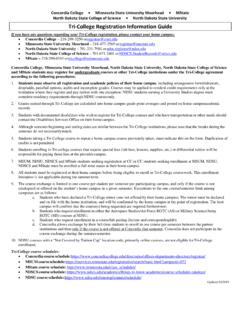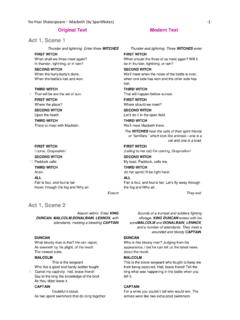Transcription of “How to Tell a True War Story” (1990) 1 Tim O’Brien
1 How to Tell a True War Story (1990)1. Tim O'Brien This is true. I had a buddy in Vietnam. His name was Bob Kiley but everybody called him Rat. A friend of his gets killed, so about a week later Rat sits down and writes a letter to the guy's sister. Rat tells her what a great brother she had, how strack the guy was, a number one pal and comrade. A real soldier 's soldier , Rat says. Then he tells a few stories to make the point, how her brother would always volunteer for stuff nobody else would volunteer for in a million years, dangerous stuff, like doing recon or going out on these really badass night patrols.
2 Stainless steel balls, Rat tells her. The guy was a little crazy, for sure, but crazy in a good way, a real daredevil, because he liked the challenge of it, he liked testing himself, just man against gook. A great, great guy, Rat says. Anyway, it's a terrific letter, very personal and touching. Rat almost bawls writing it. He gets all teary telling about the good times they had together, how her brother made the war seem almost fun, always raising hell and lighting up villes and bringing smoke to bear every which way. A great sense of humor, too. Like the time at this river when he went fishing with a whole damn crate of hand grenades.
3 Probably the funniest thing in world history, Rat says, all that gore, about twenty zillion dead gook fish. Her brother, he had the right attitude. He knew how to have a good time. On Halloween, this real hot spooky night, the dude paints up his body all different colors and puts on this weird mask and goes out on ambush almost stark naked, just boots and balls and an M-16. A tremendous human being, Rat says. Pretty nutso sometimes, but you could trust him with your life. And then the letter gets very sad and serious. Rat pours his heart out. He says he loved the guy. He says the guy was his best friend in the world.
4 They were like soul mates, he says, like twins or something, they had a whole lot in common. He tells the guy's sister he'll look her up when the war's over. So what happens? Rat mails the letter. He waits two months. The dumb cooze never writes back. A true war story is never moral. It does not instruct, nor encourage virtue, nor suggest models of proper human behavior, nor restrain men from doing the things they have always done. If a story seems moral, do not believe it. If at the end of a war story you feel uplifted, or if you feel that some small bit of rectitude has been salvaged from the larger waste, then you have been made the victim of a very old and terrible lie.
5 There is no rectitude whatsoever. There is no virtue. As a first rule of thumb, therefore, you can tell a true war story by its absolute and uncompromising allegiance to obscenity and evil. Listen to Rat Kiley. Cooze, he says. He does 1. Tim O'Brien, "How to Tell a True War Story," in Paula Geyh, et al., eds., Postmodern American Fiction: A Norton Anthology (New York: W. W. Norton, 1998), 174-183. not say bitch. He certainly does not say woman, or girl, He says cooze. Then he spits and stares. He's nineteen years old it's too much for him so he looks at you with those big gentle, killer eyes and says cooze, because his friend is dead, and because it's so incredibly sad and true: she never wrote back.
6 You can tell a true war story if it embarrasses you. If you don't care for obscenity, you don't care for the truth; if you don't care for the truth, watch how you vote. Send guys to war, they come home talking dirty. Listen to Rat: Jesus Christ, man, I write this beautiful fucking letter, I slave over it, and what happens? The dumb cooze never writes back.. The dead guy's name was Curt Lemon. What happened was, we crossed a muddy river and marched west into the mountains, and on the third day we took a break along a trail junction in deep jungle. Right away, Lemon and Rat Kiley started goofing off.
7 They didn't understand about the spookiness. They were kids; they just didn't know. A nature hike, they thought, not even a war, so they went off into the shade of some giant trees quadruple canopy, no sunlight at all and they were giggling and calling each other motherfucker and playing a silly game they'd invented. The game involved smoke grenades, which were harmless unless you did stupid things, and what they did was pull out the pin and stand a few feet apart and play catch under the shade of those huge trees. Whoever chickened out was a motherfucker. And if nobody chickened out, the grenade would make a light popping sound and they'd be covered with smoke and they'd laugh and dance around and then do it again.
8 It's all exactly true. It happened nearly twenty years ago, but I still remember that trail junction and the giant trees and a soft dripping sound somewhere beyond the trees. I remember the smell of moss. Up in the canopy there were tiny white blossoms, but no sunlight at all, and I remember the shadows spreading out under the trees where Lemon and Rat Kiley were playing catch with smoke grenades. Mitchell Sanders sat flipping his yo-yo. Norman Bowker and Kiowa and Dave Jensen were dozing, or half-dozing, and all around us were those ragged green mountains. Except for the laughter things were quiet.
9 At one point, I remember, Mitchell Sanders turned and looked at me, not quite nodding, then after a while he rolled up his yo-yo and moved away. It's hard to tell what happened next. They were just goofing. There was a noise, I suppose, which must've been the detonator, so I glanced behind me and watched Lemon step from the shade into bright sunlight. His face was suddenly brown and shining. A handsome kid, really. Sharp gray eyes, lean and narrow- waisted, and when he died it was almost beautiful, the way the sunlight came around him and lifted him up and sucked him high into a tree full of moss and vines and white blossoms.
10 In any war story, but especially a true one, it's difficult to separate what happened from what seemed to happen. What seems to happen becomes its own happening and has to be told that way. The angles of vision are skewed. When a booby trap explodes, you close your eyes and duck and float outside yourself. When a guy dies, like Lemon, you look away and then look back for a moment and then look away again. The pictures get jumbled; you tend to miss a lot. And then afterward, when you go to tell about it, there is always that surreal seemingness, which makes the story seem untrue, but which in fact represents the hard and exact truth as it seemed.
